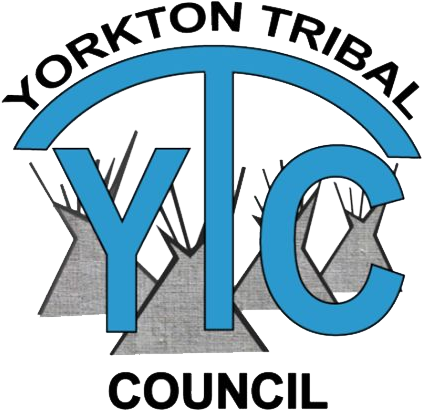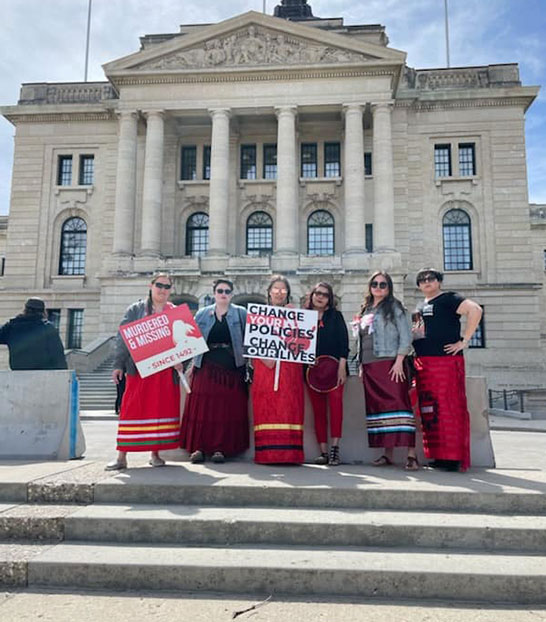Justice
Tribal Justice Unit
Mailing Address: #102-506 Broadway Street W. Yorkton, SK S3N 0P3
Located: 63 King Street E. Yorkton, SK
Phone: 306-782-8132 Toll Free: 1-866-417-9858 Fax: (306) 782-1680
MISSION STATEMENT:
The purpose of the Yorkton Tribal Council ~ Tribal Justice Unit is to provide services in the area of justice administration, which are sensitive to the cultural needs of the First Nations and Aboriginal people on reserve and in the urban environment. We will work in conjunction with the communities to develop and implement First Nation administered justice services, which is found upon and reflects the Inherent and Treaty rights of the YTC First Nations as approved by the YTC Chiefs.
Objectives of Department
The Tribal Justice Unit is based on the belief that we as First Nation peoples can and will help our own people by holding them accountable to us, their community, not the courts. The Canadian court system is adversarial. It is based on individuals offending the Crown, not an individual. Individuals must be accountable to the people they harm, as well as the community they affect.
Tribal Justice Unit staff will administer and facilitate the development and implementation of a wide variety of programs and services, which will encourage and/or facilitate, equal treatment and eventual full participation of First Nations/aboriginal within the Canadian Justice system.
Community Based Justice Initiative
Service provided to Member First Nations only – The objectives of this program are to assist Aboriginal people to assume greater responsibility for the administration of Justice in their communities – To reflect and include aboriginal values within the justice system; and – Over the long terms, along with other justice programs contribute to a decrease in the victimization, crime and incarceration among Aboriginal people.
Saskatchewan Aboriginal Courtworker Program
Services provided to any Aboriginal, First Nation, and Inuit member – The object of this program is to ensure that the clients understand their legal rights and responsibilities with regards to their offense. – Courtworkers act as an intermediary between the accused and the criminal court system. – Courtworker provides legal information, but not legal advice.
YTC Youth Reintegration Program
Service provided to Member First Nations only – Bridge the youth back into a culturally supportive network. – Connect the offending Youth to resources within the community that can respond to their needs. This includes elders, positive youth programs, recreational activities and positive family members. – Nurture First Nation Youth to become healthy, contributing individuals by introducing them to First Nations’ cultural values, beliefs and traditions.
Alternative Measures (Extra judicial Sanctions) Program
Service provided totally “Status Blind” – Provides a community–based program for Young offenders, which utilizes victim-offender mediations, community justice forums and accountability meetings and/or conferences.
Increases the offender’s accountability to the victims and community. – Helps reduce reliance on the formal Justice System for first and second time minor offences.
Other Areas of Interest:
- Peer Mediation: We have a developing curriculum that can be used in schools. We want to finish our pilot project with the one (1) school in the Yorkton Tribal Council geographical area. This process is long and with the positive feedback we have from the students, and the encouragement from the Grenfell High School, we are proposing this project to be completed by early December 2006. After completion we can then continue to teach this program at other Yorkton Tribal Council Education Centers.
- Capacity Development: The Tribal Justice Unit will continue to promote training in different areas for the Community Justice Committees, such as Community Justice Forums, Victim Offender Mediation skills, and other trainings identified by each community justice committee.
What is Alternative Measures?
Alternative Measures (AMP) is a pre or post charge program which diverts certain offences away from the formal court process. The offenders are dealt with through a mediation/diversion process, often including the victim (if applicable), in an attempt to resolve the crime out of court. If the matter is successfully resolved the offender will not end up with a criminal record for the offense. If the offender fails to complete the program the matter proceeds to court for further action.
Which Cases are handled by YTC Tribal Justice Unit?
The YTC Alternative Measures Program is a “status-blind” program, which accepts referrals for both aboriginal and non-aboriginal persons. YTC is responsible for all adult offenders on and off reserve in the region, as well as Young Offenders in the Broadview and Kamsack areas. The program will also assist in areas that are not covered by similar agencies.
What are the Referral Criteria?
- Must be a youth (12 years and older) or an adult
- Accused must accept responsibility (this is not a plea) for the offense
- Accused agrees to participate in the process
- Diverted not more than twice in the last 3 years
- No substantial record of similar offense or recent charges.
A criminal record may not automatically exclude an accused person from the program IF there has been a demonstrated effort on the part of the offender to change his/her lifestyle prior to the commission of the current offense(s).
Offences excluded from Alternative Measures:
What Happens in Alternative Measures?
For adult offenders AMP contacts the accused and victim in the case and coordinates/facilitates a mediation meeting. If the victim is not interested in taking part directly, he or she may appoint a representative to act on his/her behalf. In some cases the agency proceeds with the matter without the direct participation of the victim or a victim representative. The agency will appoint a surrogate victim in these matters.
Through mediation, the accused explains his/her involvement in the offense and gives the victim the opportunity to express how the crime affected him/her. Once the feelings and concerns of the parties are explored and dealt with, then an agreement for settlement is sought.
In cases where the victim does not wish to participate or appoint a representative the matter can still proceed. This process is a separate form of diversion where AMP uses a surrogate victim or agency representative to deal with the matter.
With respect to youths, the same process is undertaken, except parents are notified and encouraged to participate. In some cases, as deemed appropriate by the AMP agency, certain young offenders will be processed through a process of Family Group/Community Accountability Conferencing. Though this process victims, offenders and significant others, such as extended family and community members who have an interest in the outcome, and/or are affected by the crime, are provided an opportunity to meet and attend to the material and emotional effects resulting from and relating to the incident.
With respect to on-reserve First Nation members, the same process is undertaken, except that the First Nation Justice Committee is notified and encouraged to participate.
What Does an Offender Have to do as a Result of the Process?
The offender may have to do one or more of the following:
- Restitution/Compensation in cash
- Personal service work for victim
- Community service work
- Cultural / Spiritual activities
- Curfew / residency stipulation
- Educational programming
- Formal apology
- Short essay
- Referral to specialized program (anger management, crime prevention, mentoring, etc.)
- Referral for assessment / counseling treatment (drug/alcohol, mental health, family services, etc.) Cultural / Spiritual activities
The Alternative Measures Program is a branch of the Yorkton Tribal Council’s Tribal Justice Unit, which consists of:
(ALTERNATIVE MEASURES PROGRAM (AMP) & THE EXTRA JUDICIAL SANCTIONS (EJS) Sponsored by: Saskatchewan Justice, Justice Canada, Corrections & Public Safety and Policing)
Youth Reintegration and Cultural Program
The Youth Reintegration Caseworkers are representatives of the Yorkton Tribal Council Justice Unit. They serve the Yorkton Tribal Council catchment area, which includes the First Nations of Cote, Kahkewistahaw, Keeseekoose, The Key, Ocean Man, and Zagime Anishinabek.
When the Youth Criminal Justice Act came into effect, it stated that the Judicial System would find different ways to correct the wrongdoings of the Youth who committed criminal acts. Corrections and Public Safety Youth Workers or Intensive Case Management Workers may make the referrals to the Youth Reintegration and Cultural Program. In addition to the referral, the youth has the choice of participating in the program. Agencies involved are Corrections and Public Safety and Policing, Saskatchewan Justice, and Tribal Councils from various First Nations in Saskatchewan.
Our Vision
Through Culture and Healing First Nation Youth need to find their identity. By using a holistic approach, the Reintegration Caseworkers will work together with family members, elders, schools, youth workers, and positive youth programs in the communities to develop a case plan to reintegrate these youth back into their home community.
Program Goals and Objectives:
(Sponsored by: Corrections & Public Safety and Policing).
Aboriginal Courtworker Program
Purpose and Objectives
The Saskatchewan Aboriginal Courtworker Program’s Purpose is to facilitate and advocate for justice by assisting Aboriginal people involved in the criminal justice system to obtain fair, just, equitable and culturally sensitive treatment – will act as an intermediary between the accused and the Criminal Justice system. The Aboriginal Courtworker program is status blind and serves Indian, Métis and Inuit regardless of geographic location. The Aboriginal Courtworker works in Partnership with, yet independent from courts, government and other organizations. The Aboriginal Courtworker will bridge whatever gap may exist between the criminal justice system and the aboriginal people. The Aboriginal Courtworker strives to contribute to the achievement of the goals of the criminal justice system, the Aboriginal community as well as to a more complete understanding of the needs and concerns of Aboriginal people by administrators of criminal justice
Aboriginal Courtworker Duties include:
FREQUENTLY ASKED QUESTIONS
Are you a Lawyer?
No, Aboriginal Courtworkers are not lawyers. They are trained to assist people in conflict with the Justice system.
Can Aboriginal Courtworkers offer legal advice?
No, Aboriginal Courtworkers cannot offer legal advice. However, they can explain how the Court system works and a person should seek legal advice from a lawyer.
Is everything I tell my Aboriginal Courtworker confidential?
In general terms, yes. However, if you disclose a case of child abuse or neglect or self-harm, it is required by law to be reported to authorities.
Is everything I tell my Aboriginal Courtworker confidential?
In general terms, yes. However, if you disclose a case of child abuse or neglect or self-harm, it is required by law to be reported to authorities.
For more information on Aboriginal Courtworkers contact Website: www.courtworkers.com
(Sponsored by: Saskatchewan Justice)

